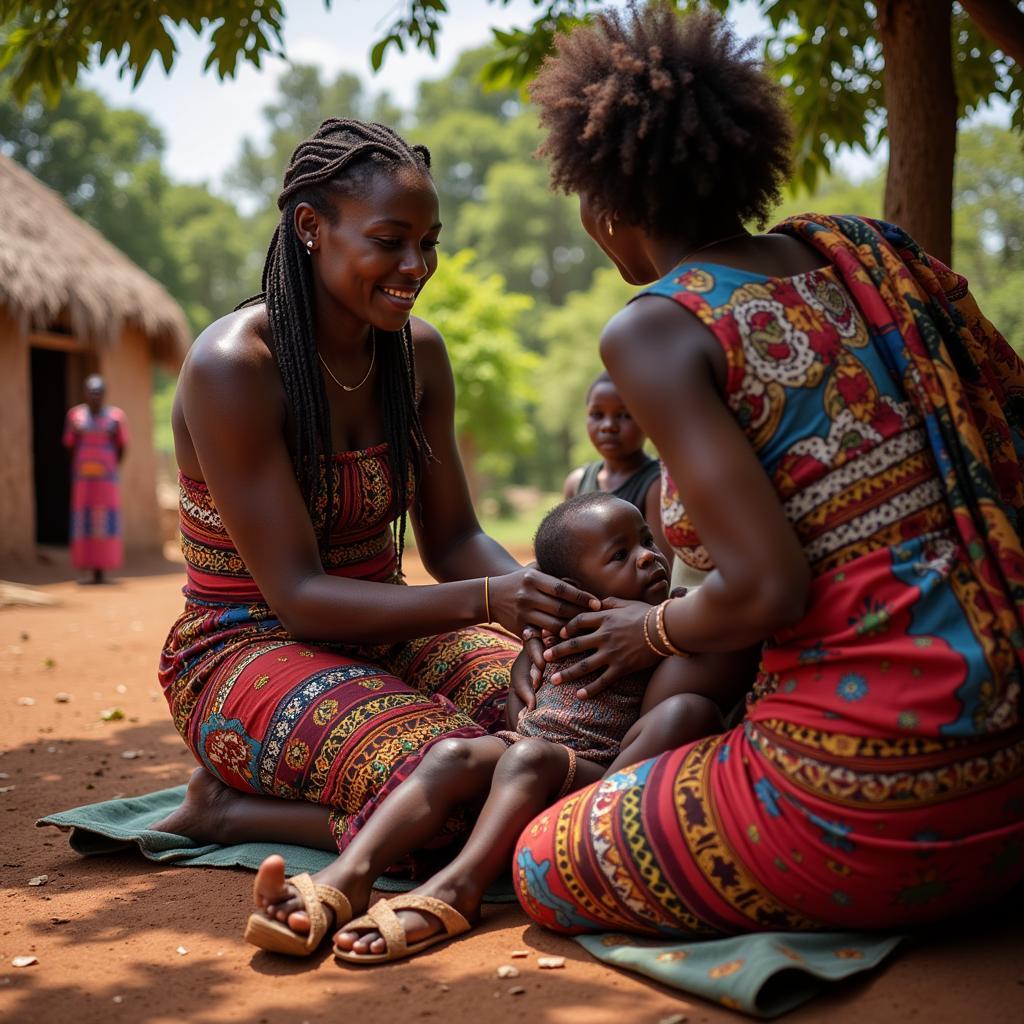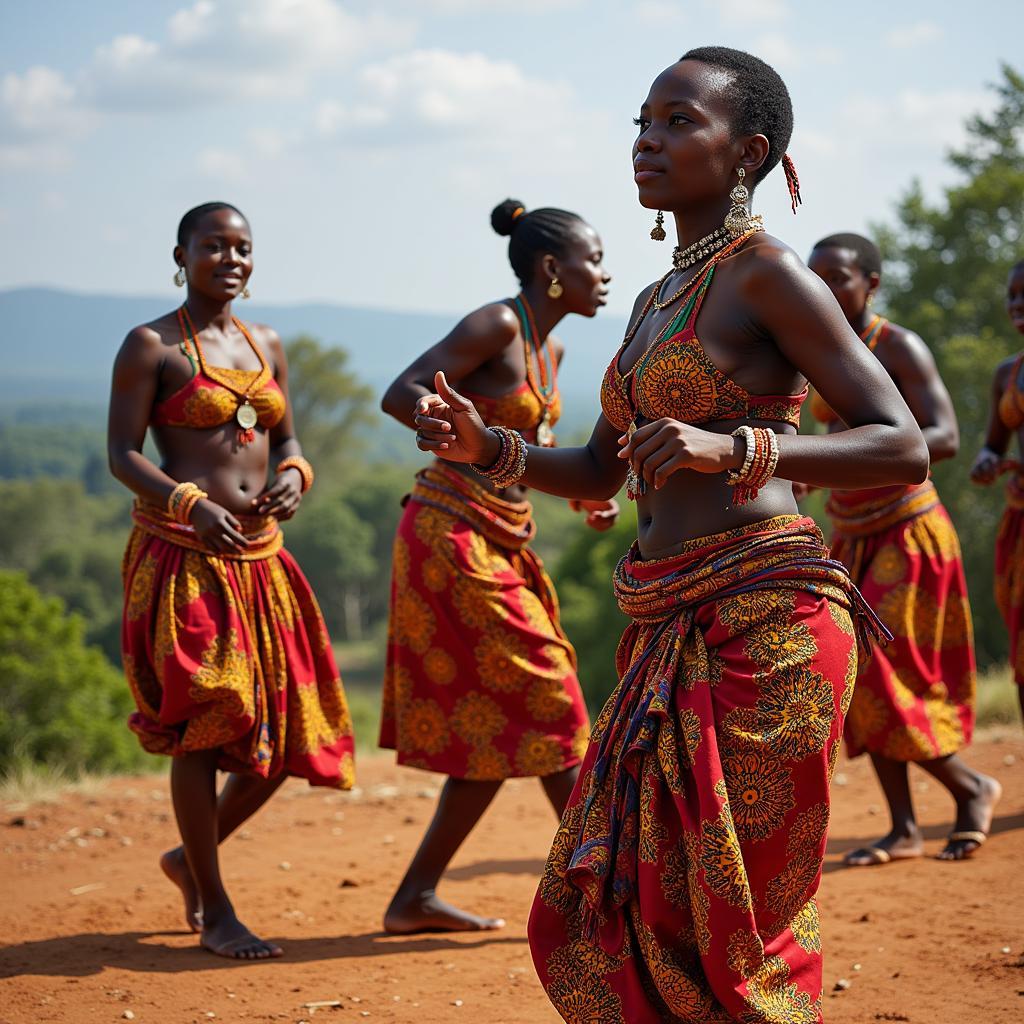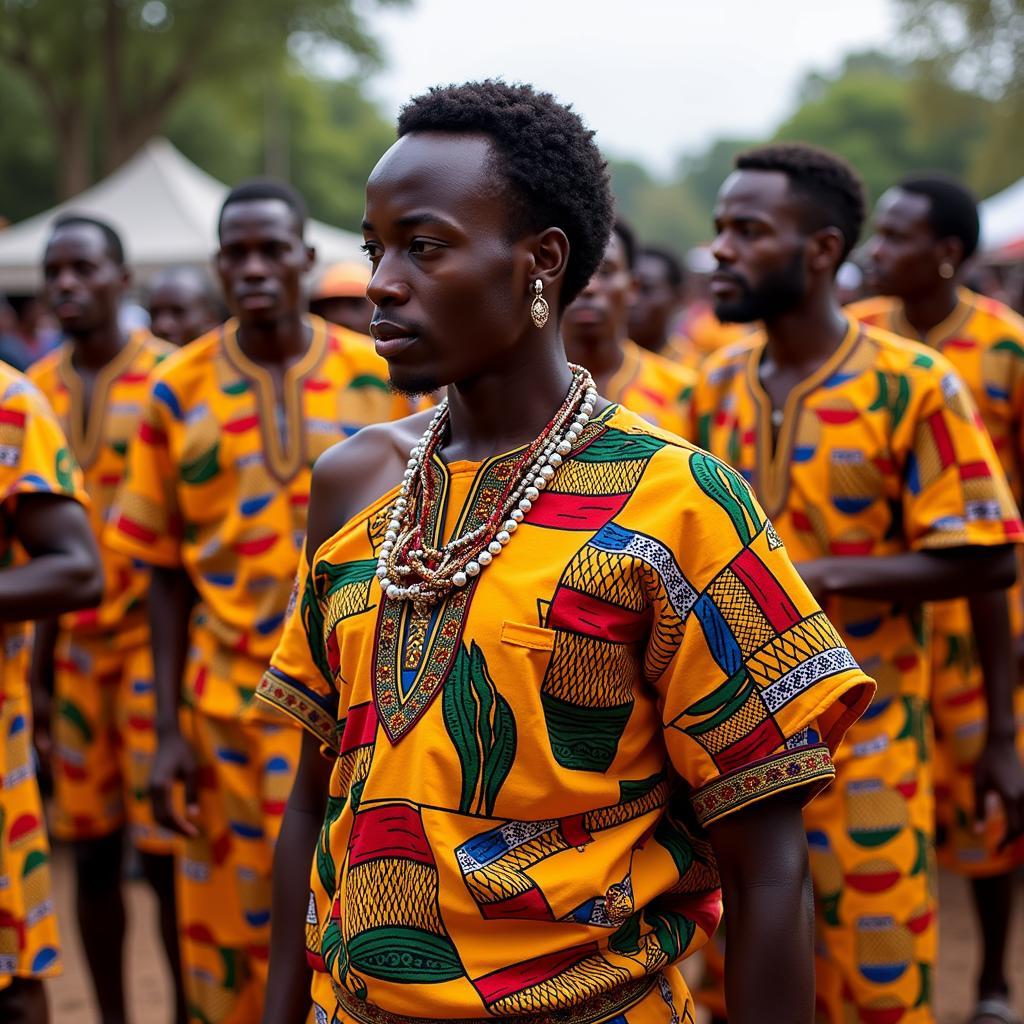African Baby Delivery: Traditions and Modern Practices
African Baby Delivery practices are diverse and fascinating, reflecting the continent’s rich tapestry of cultures and traditions. From ancient rituals to modern medical approaches, the journey of bringing a new life into the world is marked by unique customs and beliefs that vary significantly across different regions and ethnic groups. Understanding these practices offers a glimpse into the deep-rooted values and beliefs that shape African communities.
A common thread running through many traditional African birth practices is the emphasis on community support. Mothers are often surrounded by experienced women, including midwives, family members, and other community elders. These women provide physical and emotional support throughout pregnancy, labor, and the postpartum period. This communal approach underscores the importance of shared responsibility and the collective wisdom passed down through generations. More information regarding newborn babies can be found on African Baby Newborn.
The Role of Traditional Birth Attendants
Traditional birth attendants (TBAs) play a crucial role in many African communities, especially in rural areas with limited access to modern healthcare facilities. These women, often highly respected within their communities, possess a wealth of knowledge accumulated through years of experience. They offer prenatal care, assist with deliveries, and provide postpartum support to mothers and newborns. Their expertise often combines traditional methods with basic hygiene practices.
While TBAs offer valuable support in many communities, integrating their knowledge with modern medical practices is essential for ensuring safe and healthy deliveries. Training programs that equip TBAs with updated knowledge and skills can help bridge the gap between traditional and modern approaches, improving maternal and child health outcomes. You can learn more about African Christen Beliefs To Baby for further understanding of cultural context.
After this introductory overview, you might also be interested in exploring African American Culture Pregnancy for a comparative perspective.
 Traditional African Birth Attendant Assisting with a Delivery
Traditional African Birth Attendant Assisting with a Delivery
Modernizing African Baby Delivery
Access to modern healthcare facilities and skilled medical professionals remains a challenge in many parts of Africa. However, significant progress has been made in recent years to improve maternal and child health. Governments and international organizations are working to expand access to prenatal care, skilled birth attendance, and emergency obstetric care. These efforts are vital for reducing maternal mortality and morbidity rates, ensuring safer deliveries, and promoting healthy newborns.
One of the key strategies for modernizing African baby delivery is investing in training and education for healthcare professionals. This includes providing midwives and doctors with the latest knowledge and skills in obstetrics and neonatal care. Equipping healthcare facilities with essential equipment and supplies is also crucial for ensuring safe and effective interventions during childbirth. Furthermore, educating communities about the importance of seeking professional medical care during pregnancy and delivery is essential for promoting positive health behaviors.
Addressing Cultural Barriers
Cultural beliefs and practices can sometimes present challenges to modernizing African baby delivery. Certain traditions may discourage women from seeking medical care during pregnancy or childbirth. For instance, some communities believe that giving birth in a hospital is taboo or brings bad luck. Addressing these cultural barriers requires sensitivity and respect for local customs. Working with community leaders and traditional healers can help build trust and encourage the adoption of safe and healthy practices.
Open communication and education are crucial for dispelling myths and misconceptions about modern medicine. Providing culturally sensitive healthcare services that respect traditional values can encourage more women to seek professional care during pregnancy and childbirth.
Conclusion
African baby delivery is a complex and multifaceted topic encompassing a wide range of traditional practices and modern approaches. Understanding the cultural context surrounding childbirth is crucial for promoting safe and healthy deliveries across the continent. By respecting traditional values while embracing modern medical advancements, we can work towards improving maternal and child health outcomes and ensuring a brighter future for generations to come. Further exploration of African baby delivery practices can enrich our understanding of the diverse and dynamic cultures of Africa. For more culinary experiences, you can explore African Food Delhi.
FAQ
- What is the role of a traditional birth attendant?
- How are cultural barriers being addressed in modernizing African baby delivery?
- What are some common traditional practices associated with childbirth in Africa?
- What challenges do rural communities face in accessing modern healthcare for childbirth?
- What are the key strategies for improving maternal and child health outcomes in Africa?
- How can modern medicine be integrated with traditional practices in a respectful way?
- What are the benefits of community support during pregnancy and childbirth in African cultures?
Have any other questions? Explore more related articles on our website.
Need assistance? Contact us 24/7: Phone: +255768904061, Email: kaka.mag@gmail.com or visit us at: Mbarali DC Mawindi, Kangaga, Tanzania.



